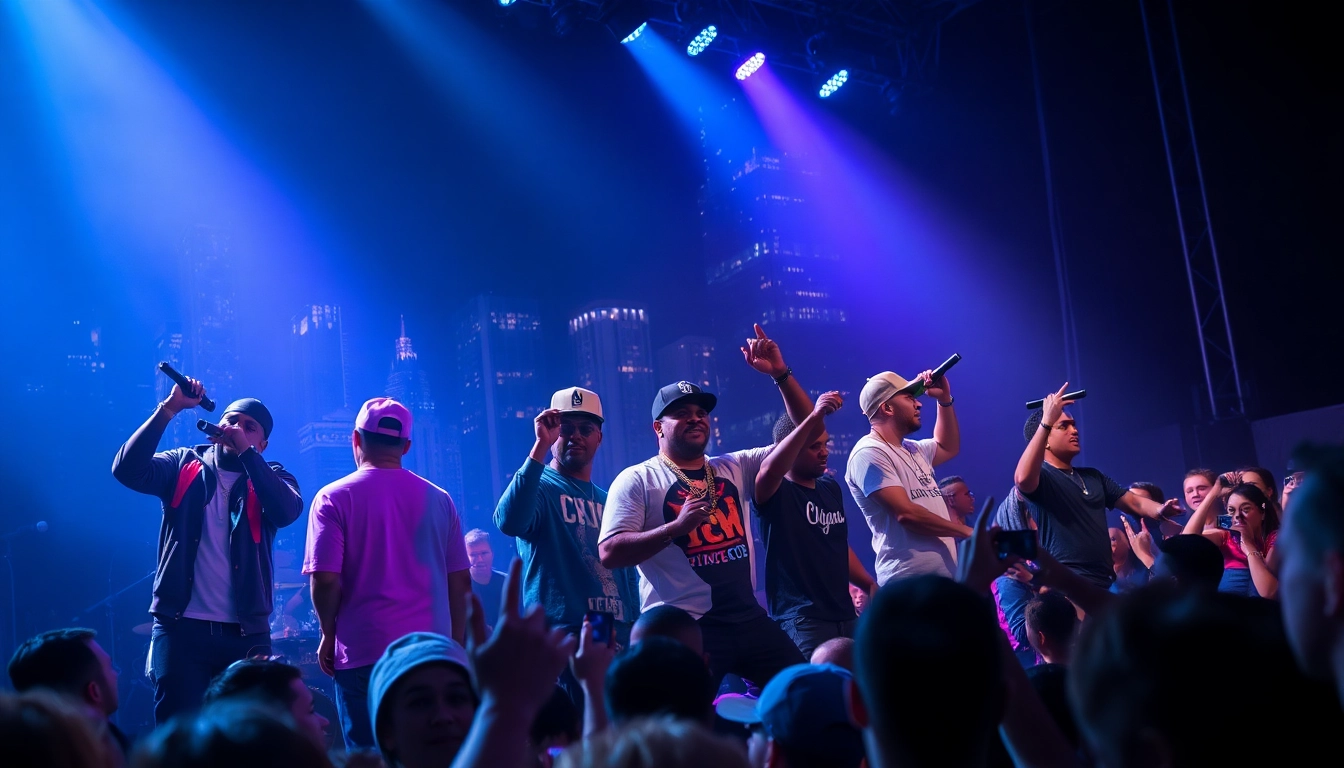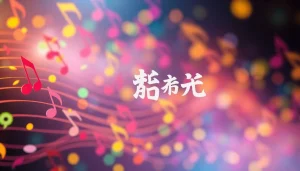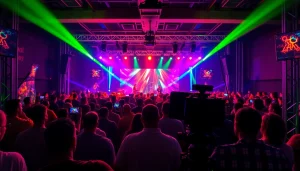Top Chicago Hip-Hop Artists Shaping the Sound of the City
1. Introduction to Chicago’s Hip-Hop Scene
Chicago has long been a significant player in the hip-hop landscape, a city where diverse cultures and narratives coalesce to create a unique sound. The set of voices coming from the Windy City ranges from the influential legends of the 90s to the exciting new artists emerging in today’s music scene. This article delves into the intricate layers of Chicago hip-hop artists, exploring the rich history, pivotal figures, and emerging trends that define this vibrant and ever-evolving genre.
Emergence of the Genre in Chicago
The roots of hip-hop in Chicago extend back to the early days of the genre, reflecting the socio-political landscapes of the time. Emerging in the late 1970s and 80s, hip-hop music in Chicago began as a fusion of DJs mixing funk, disco, and rock tunes with MCing. One pivotal moment came with the launch of House Music in the 1980s, which resonated in the nightclubs of Chicago, ultimately influencing both hip-hop and modern music trends. As the city’s artists expanded their lyrical themes to address their daily experiences, struggles, and dreams, Chicago’s unique voice in hip-hop began to take shape.
Influential Artists and Their Impact
Influential artists have paved the way for Chicago’s hip-hop prominence. Pioneers like Common, Twista, and Kanye West have established a legacy that intertwines with the fabric of American music. Common, with his introspective lyrics and powerful storytelling, helped to elevate conscious rap. Twista’s rapid-fire delivery and charismatic energy brought a new flavor to the genre, and Kanye West revolutionized not just hip-hop production but the entire music industry with innovative use of sampling and genre-blending.
Current Trends and Styles in Chicago Hip-Hop
Today’s Chicago hip-hop scene is a diverse melting pot of styles that reflects the city’s rich cultural heritage. The emergence of Drill music, characterized by its hard-hitting beats and raw lyrics, has gained worldwide recognition, establishing a powerful subgenre that resonates with younger audiences. Artists like Chief Keef and G Herbo have propelled this sound to the forefront, marking a significant shift from the smooth flows of the past to a more aggressive and confrontational style. Furthermore, collaborations among artists spanning various genres—like the eclecticism exhibited by Chance the Rapper—have helped to broaden the appeal of Chicago hip-hop beyond traditional boundaries.
2. Noteworthy Chicago Hip-Hop Artists from the 90s
Foundational Figures in the Scene
The 1990s were instrumental in establishing Chicago as a hip-hop hotspot. Iconic figures like Common, Twista, and the group Crucial Conflict emerged as powerful voices that brought their experiences to mainstream audiences. For instance, Common’s albums, beginning with the critically acclaimed Can I Borrow a Dollar? in 1992, introduced a lyrical depth that challenged listeners to think critically about societal issues.
Key Hits That Defined the Era
During this period, several key tracks became anthems that defined the Chicago hip-hop sound. Common’s hit “I Used to Love H.E.R.” remains a pivotal track that encapsulates the essence of hip-hop culture while critiquing its commercialization. Similarly, Twista’s “Slow Jamz,” featuring Kanye West and Jamie Foxx, showcased the potential of Chicago artists in the national market, achieving commercial success and critical acclaim.
Legacy of 90s Chicago Artists
90s artists laid the foundation for subsequent generations of Chicago rappers, inspiring a new wave of talent that would dominate the charts. The lyrical techniques, themes, and stylistic choices made by these pioneers introduced listeners to a more complex and nuanced form of hip-hop that continued to resonate in the following decades. They also paved the way for Chicago to be recognized not only as a city of the blues but also as a profound contributor to the hip-hop genre.
3. Contemporary Chicago Hip-Hop Artists
Rising Stars in the Chicago Scene
As we moved into the 2000s and beyond, a new generation of artists brought fresh perspectives and styles to the Chicago scene. Artists like Polo G and Juice WRLD have emerged as significant figures in contemporary hip-hop. Polo G, with his emotional honesty and authenticity, has found a dedicated following, especially among younger listeners. Juice WRLD’s unique blend of melodic rap and emo influences opened up new avenues for self-expression, making him an icon before his untimely passing.
Collaborations and Cross-Genre Influence
Recent Chicago artists have not only contributed to hip-hop but have also ventured into collaborations that span various genres, further diversifying their sound. Chance the Rapper, known for his genre-defying tracks, often collaborates with gospel and jazz musicians, elevating hip-hop by incorporating elements from multiple styles. Such cross-genre techniques set Chicago artists apart in a global music marketplace, allowing them to explore and expand their musical offerings.
Impact of Digital Platforms on Their Success
The rise of digital music platforms has fundamentally transformed how Chicago hip-hop artists reach audiences. Platforms like Spotify, SoundCloud, and YouTube have democratized music distribution, allowing artists to cultivate and engage with their fan bases without relying on traditional record labels. This shift has propelled many artists from Chicago into the spotlight, including those who may have previously gone unheard. Streaming services have played a crucial role in showcasing talent, fostering a community that celebrates local artists.
4. The Rise of Chicago Drill Music
Understanding the Drill Subgenre
Drill music, characterized by its aggressive themes and hard-hitting beats, originated from South Side Chicago in the early 2010s. This subgenre vividly portrays the realities of street life, often reflecting the struggles, violence, and aspirations of its artists. The gritty lyricism combined with raw production creates a powerful auditory experience, compelling listeners to confront the harsh realities depicted in the lyrics.
Key Artists and Their Contributions
Prominent figures in the drill scene include Chief Keef, Lil Durk, and King Von. Chief Keef, often credited with bringing drill from local underground circles to the mainstream, has influenced countless artists globally. His breakout track “I Don’t Like” not only garnered massive commercial success but also put Chicago drill on the map. Lil Durk and King Von followed suit, furthering the genre’s reach and impact, while also engaging in narratives that resonate deeply within their communities.
Drill’s Influence on Global Hip-Hop
Chicago drill has transcended its local roots, influencing the global hip-hop landscape. Artists across the world have started to embrace drill music’s sound, incorporating its stylistic elements into their own interpretations. From the UK drill scene’s emergence to collaborations with artists in various countries, Chicago’s influence on drill highlights the interconnectedness of hip-hop culture and the genre’s capacity to evolve continuously.
5. Future of Chicago Hip-Hop: Trends to Watch
Emerging Styles and Genres
As we look to the future, the Chicago hip-hop scene is primed for further evolution. Trends indicate a growing inclination towards genre-blending, where artists are incorporating sounds from R&B, electronic music, and rock. The fusion of these styles allows Chicago artists to push boundaries and create innovative sounds that appeal to broad audiences. Expect to see this trend continue as artists experiment and redefine their musical identities.
The Role of Community and Culture
Community plays a vital role in the evolution of hip-hop in Chicago. Many artists draw inspiration from their neighborhoods and the cultural fabric that surrounds them. The connection to place, combined with collaborative efforts among artists, producers, and local organizations, is strengthening the community as a whole. This support network not only amplifies individual voices but also creates a culture of encouragement that fosters artistic endeavors.
Forecasting the Next Wave of Hip-Hop Artists in Chicago
Looking ahead, the next wave of Chicago hip-hop artists are likely to emerge from diverse backgrounds, drawing on the city’s varied cultural influences. As platforms for self-expression continue to grow and evolve, new artists will rise, bringing with them unique perspectives and artistry that reflect their experiences. These rising stars will carry on the legacy of their predecessors, informing the narrative of Chicago hip-hop while pushing its boundaries in exciting directions.



